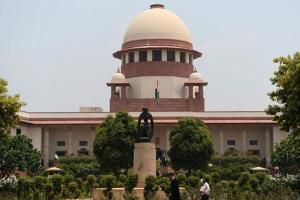The supreme court has also asked whether the cases have been transferred to the Special Courts set up in pursuance to its December 2017 order to try them

Supreme Court of India
The Supreme Court on Wednesday directed the Chief Secretaries of all the states, including Registrars General (RGs) of the High Courts, to furnish details of the criminal cases pending against the MPs and MLAs. It also asked whether the cases have been transferred to the Special Courts set up in pursuance to its December 2017 order to try them.
ADVERTISEMENT
A bench of Justice Ranjan Gogoi, Justice Navin Sinha and Justice K.M. Joseph also sought information about whether Special Courts set-up in pursuance of its order were functional. It wanted to know whether, in view of the volume of cases pending, there was need of additional special courts to try lawmakers facing criminal cases.
The court made it clear that if required it would monitor the compliance of its orders passed from time to time. The court order binding the Chief Secretaries and RGs came as it was apparently not satisfied with the information furnished by the Union Ministry of Law and Justice in its affidavit filed on September 11.
The affidavit said that a total of 1,233 criminal cases were transferred to the Special Courts. Of these, 136 have been disposed of and remaining 1,097 were pending.
Appearing for petitioner Ashwini Upadhyaya, counsel Sajan Povvaya urged the court to see if Special Courts were actually working as he cited the example of Protection of Children from Sexual Offenses (POCSO) courts that have been set up by the states but were not functional as there were no presiding judges.
Catch up on all the latest Crime, National, International and Hatke news here. Also download the new mid-day Android and iOS apps to get latest updates
This story has been sourced from a third party syndicated feed, agencies. Mid-day accepts no responsibility or liability for its dependability, trustworthiness, reliability and data of the text. Mid-day management/mid-day.com reserves the sole right to alter, delete or remove (without notice) the content in its absolute discretion for any reason whatsoever
 Subscribe today by clicking the link and stay updated with the latest news!" Click here!
Subscribe today by clicking the link and stay updated with the latest news!" Click here!






